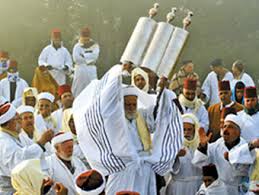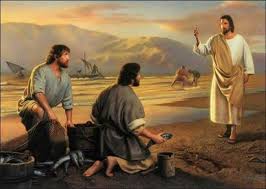
– 26th June 2022 –

13th Sunday in Ordinary Time
Gospel Text: Luke 9:51-62
v. 51 As the time drew near for him to be taken up to heaven, he resolutely took the road for Jerusalem and
v.52, 53 sent messengers ahead of him but the people would not receive him because he was making his way to Jerusalem. These set out, and they they went into a Samaritan village to make preparation for him
vs. 54 Seeing this, the disciples James and John said,
“Lord, do you want us to call down fire from heaven to burn them up?”
vs. 55 But he turned and rebuked them,
vs. 56 and they went off to another village.
vs. 57 As they travelled along they met a man on the road who said to them,
“I will follow you wherever you go.”
vs. 58 Jesus answered, “Foxes have holes and the birds of the air have nests,
but the Son of Man has nowhere to lay his head.”
vs. 59 Another to whom he said, “Follow me,” replied, “Let me go and bury my father first.“
vs. 60 But he answered,
“Leave the dead to bury their dead; your duty is to go and spread the news of the kingdom of God.”
vs. 61 Another said, “I will follow you, sir, but first let me go and say good-bye to my people at home.“
vs. 62 Jesus said to him,
“Once the hand is laid on the plough, no one who looks back is fit for the kingdom of God.”
*******************************************
We have four commentators available from whom you may wish to choose .
Michel DeVerteuil : A Trinidadian Holy Ghost Priest, director of the Centre of Biblical renewal .
Thomas O’Loughlin: He is on the theology faculty of Nottingham University
Sean Goan: Studied scripture in Rome, Jerusalem and Chicago and teaches at Blackrock College and works with Le Chéile Schools.
Donal Neary SJ: Editor of The Sacred Heart Messenger
*********************************
Michel de Verteuil
Lectio Divina The Year of Luke
www.columba.ie
General Textual Comments
Today’s gospel reading is divided into sections, and the general theme of commitment is running thorough them all. In verses 51 to 56, Jesus is presented as a model of commitment; in 57 to 62, he gives three teachings which concretize in dramatic form the implications of a commitment.
In your meditation, feel free to draw on any experience of commitment which is deep and leads to spiritual growth.
In verses 51 to 56, St Luke shows us Jesus reaching a new level of clarity in his life. The result as shown in this incident is a combination of resoluteness and compassion; your meditation will reveal to you how true to life this is. The attitude of the two disciples is meant to contrast with that of Jesus; ask yourself, what made the difference between them?
In verses 57 and 58, the man on the road is asking Jesus to point out a definite place where he can lead him.
Jesus’ response to the two people is contained verses 59 to 62 will seem harsh at first reading. Let your meditation remind you of great people who have touched your life and have made those kinds of demands on people; in that way you will understand what these responses tell us about the teaching of Jesus.
You might like to remain simply with the metaphor in verse 62 of laying one’s hand on the plough and not turning back.
Scripture Reflection
Lord, we think today of those who have just learnt that they are suffering from an incurable disease.
Now they know that the time has drawn near when they are to be taken to heaven,
may they resolutely take the road for Jerusalem.
“Make us know the shortness of our life, that we may gain wisdom of heart.“ … Psalm 90
Lord, we often find that when we have resolutely taken some road
– standing up against discrimination in our community,
– deciding to forgive a long-standing hurt,
– dedicating ourselves to the service of the poor,
we quickly become intolerant of those who disagree with us.
But if we keep in mind that the time is always drawing near
for us to be taken up to heaven, it makes us more compassionate,
so that when we send messengers ahead of us
and people will not receive them because of where we are making for,
we do not call down fire from heaven to burn them up,
but merely go off to another village.
 “In our inner journey there always remains something more to be given up, some new depth of God to be sounded, some deeper understanding of ourselves and the world.” …Cyprian Smith osb
“In our inner journey there always remains something more to be given up, some new depth of God to be sounded, some deeper understanding of ourselves and the world.” …Cyprian Smith osb
Lord, how true it is that when we are searching for union with you,
we can never remain still,
foxes may have holes and birds of the air nests,
but there is no place where we can lay our heads.
“For Christians, every place is a homeland and every homeland is a foreign land.” 2nd Century writer
 Lord, never let us, as a Church, deceive our members
Lord, never let us, as a Church, deceive our members
that we can lead them somewhere where they can be permanently safe:
– a political or economic system that we won’t need to question;
– a philosophy which will answer all our questions;
– a way of understanding the message of Jesus which gives the whole truth of his message.
Teach us to say frankly, as Jesus did,
that foxes have holes where they can lie down and rest,
birds of the air have their nests which they can call home,
but for us it is a constant search for where you want us to be.
“Once I committed myself to the Way, the word ‘courage’ lost its meaning, since nothing could be taken from me.” …Dag Hammarskjold
Lord, how sweet and gentle is the moment of commitment.
No one has to tell us, we just know we are there.
Old fears have been laid to rest so completely
that we don’t have to worry about burying them,
past attachments have faded away
so that we don’t want to spend any time saying good-bye to them,
our hands are laid on the plough and to look back would be false to ourselves.
Lord, our societies are still torn by ideological conflicts that are leading nowhere:
– capitalism or communism, aligned or non-aligned, first, second or third world.
Send us leaders who will be straightforward like Jesus,
showing our people that if we spend time laying these problems to rest,
we will be like dead people burying the dead,
whereas our duty is to go out and spread the news
that a new civilization is being born and we can be part of it.
**********************************************
Thomas O’Loughlin
Liturgical Resources for Year C (Luke)
www.columba.ie
Introduction to the Celebration
Coming together week after week we can forget that we have each made a decision to follow Jesus and to make the growth of his kingdom our goal in life. But we get distracted, we lose focus, we get tired, and we even get lost from time to time. Now as we gather around the Lord at his table we ask the Lord to refocus us on what is truly important and to give us the food to sustain us on our pilgrimage of life.

Gospel Notes
This gospel is made up of several elements. The first element is the story of the Samaritan villagers who show hostility to this group of Galileans passing through their territory on the way to worship in Jerusalem. The very fact of passing through that area was tantamount to saying that the only place for ‘[true] Jews’ (because the Samaritans also claimed the name ‘Jew’) was to worship is in the temple in Jerusalem, and implicitly to assert that their cult in their temple was a false one. Jesus, by rebuking the disciples who want to call in an air strike, shows himself to be living by his own command to love one’s enemies

Tolerance means accepting others as they are not denying them or separating ourselves from them.
The second element is the sayings on the nature and cost of discipleship. Here Lk 9:59-59 is paralleled in Mt 8:19-22, but the Lukan text is made much sharper by the addition of verses 60-62. What we have is three ‘words of wisdom’ — rules of thumb — for disciples. And, following a convention with such ‘words’ (our word ‘proverb’ does not really convey the idea), they are models of hyperbole: a point so exaggerated as to be bizarre, but precisely because of this they are memorable and lodge themselves in the imagination of the hearers. We might express it with a tag like: ‘Discipleship is demanding.’
However, many people have become so accustomed to hearing utterances of Jesus as if they were first uttered yesterday, that becoming attuned to the teaching methods of his distant world is almost impossible for them, and in recent centuries this has often led to literalist interpretations (e.g. in the rules of enclosed nuns on attending family celebrations) that miss the point that Jesus was making: the demands of discipleship are there day in and day out — not just in these extreme situations.
Homily Notes
1. This gospel (or, at least, the last four verses of today’s gospel) not only sounds harsh — leave the dead to bury the dead — but to go against both a basic instinct to sympathise and help those who mourn, and against what Christians have preached as a ‘corporal work of mercy’: to bury the dead. But the place to start is not with this saying of Jesus but with some basic characteristics of human behaviour to which this is a saving antidote and a nugget of holy wisdom.
2. The first instinct is the ‘get it for me now’ instinct: we want results instantly and without waiting. We become then fixated on the immediate, today, quick wins, and visible results. This is not a new characteristic that has been produced by the speed of modern living for it is at the heart of many philosophies that we can be so intoxicated by what see directly before us or feel or taste, that we loose sight of the more important realities.
Gregory the Great in his Pastoral Rule noted this phenomenon when he said that one type of fool was the person who going on a long journey down a road was so distracted by the dogs barking at him from each gate that he forgot the destination and only noticed the various dogs. It is this instinct that the advertising industry taps into with glossy images and promises of instant satisfaction: you don’t have to wait; it will happen today, heaven is an instant (and a little cash) away.
The other instinct seems the opposite of the first: procrastinate, wait till we have a bit more time or energy, put things on the long finger. This only seems the opposite instinct; in fact, it really is the same problem: important big things can wait, while I concentrate on little and palpably gratifying quick wins. Fixing the gutters of the house is neither cheap nor that satisfying for no one will tell you how much they like the repair, it is hassle and expensive and disruptive: all that stuff needs to be moved, the tradesmen found, the cash saved up, and then you have to be around to answer questions and make decisions and … Well, they have lasted this long, they can last a bit longer, or at least till after the holidays or the big birthday or the winter or till next year! This is characteristic of us humans as much as thinking that instant coffee is really coffee simply because it is quicker and easier to make! How often do we hear that a disaster has crept up on people as they left it too late to do something. There is a deep-rooted laziness in us that finds tackling the bigger, less obvious issues so difficult as to overwhelm us. So we avoid them and concentrate on immediate things of the senses as a substitute for real action.
3. This laziness has been given various names down the centuries in various religions. For western Christianity the most famous name was given to it by Augustine, ‘concupiscence,’ and he saw it as a direct result of the sin of Adam and Eve that had established itself in our genes, as it were. But while it is probably best to steer clear of the whole edifice of the theology of Original Sin in relation to this, and certainly in a little Sunday homily, there is still the fact — known to both governments and advertisers — that we have this laziness within our make-up, irrespective of what name we give it or how we explain its origins.
4. This laziness reaches its greatest depth when it comes to the things of the spirit: the decision to take discipleship seriously, to begin building the kingdom of God, to live as witnesses to the presence of God. This is made all the more difficult as to desire the kingdom of God necessitates that we start building the society of God with those we live with, work with, and interact with. But the change and action needed seems too big, so let’s put it off till a little later, next year perhaps, or when life has settled down a bit. That moment, by the way, when life settles down a bit (and when we can make a more considered decision) is identical with the moment when the earth finally settles in our grave.
5. Today’s sayings by Jesus: ‘Leave the dead to bury the dead, but you go and preach the kingdom of God’ and ‘No one, having put his hand to the plough and looking back, is fit for the kingdom of God’ alert us to this fact of our nature. The kingdom must begin now, and it is difficult, and it is a shock to the system. And, when we look around we can see just how many of us stand and pray ‘thy kingdom come’ yet at the same time putting our part in that coming off until ‘sometime in the future’.
6. However, once we listen to the proddings of the Spirit in our hearts, that we should begin this work of building the kingdom, then the Spirit helps and gives us strength to set out on the new road of discipleship. It is this help we receive to take our part in the reconciliation of the world to the Father through Jesus that we often refer to as ‘grace’. God invites us to follow and then helps us respond to the invitation: but it is easier to say this than to make this an urgency in our lives. The plough is before us, the challenge is to take hold of it and use it to carve out a new furrow that plays its part in the renewal of the creation.
****************************
3. Sean Goan
Let the reader understand
www.columba.ie
Gospel
 In the gospel of Luke today we read of that important moment when Jesus decides to head for Jerusalem. This is presented as a very conscious decision on the part of Jesus who is fully aware that his preaching of the kingdom will bring rejection and death. While Jesus may well be aware of the meaning of the kingdom of God it is clear that his disciples do not grasp its essentials. They want to send down fire and brimstone on the Samaritans who would not receive them. Jesus, we are told rebuked them, and went on his way. There can be no violent coercion with the preaching of the gospel; rather what the gospel demands is whole hearted commitment from those who believe in it. The extent of that commitment is then presented through three different images of people whose hesitation and dithering elicit statements from Jesus about the demands of being a disciple. Clearly these images are not be taken literally but they are deliberately hard in order to force us into thinking more about where our priorities lie.
In the gospel of Luke today we read of that important moment when Jesus decides to head for Jerusalem. This is presented as a very conscious decision on the part of Jesus who is fully aware that his preaching of the kingdom will bring rejection and death. While Jesus may well be aware of the meaning of the kingdom of God it is clear that his disciples do not grasp its essentials. They want to send down fire and brimstone on the Samaritans who would not receive them. Jesus, we are told rebuked them, and went on his way. There can be no violent coercion with the preaching of the gospel; rather what the gospel demands is whole hearted commitment from those who believe in it. The extent of that commitment is then presented through three different images of people whose hesitation and dithering elicit statements from Jesus about the demands of being a disciple. Clearly these images are not be taken literally but they are deliberately hard in order to force us into thinking more about where our priorities lie.
Reflection
Today’s readings are a reminder that true faith is always a  matter of the heart. When Elisha’s commitment was called into question he had no hesitation in showing the depth of his desire to serve the Lord. He would make whatever sacrifice was required of him. So too the Galatians are told that it is not fidelity to an external observance that will make them followers of Jesus but the extent to which they live the life of the Spirit. The inner driving force of true faith may remain hidden but its results will be plain to see for it will show itself in a life of loving service. That is perhaps why Jesus is so uncompromising in his demands, because he does not his followers to imagine for one moment that this is some kind of ‘soft option’.
matter of the heart. When Elisha’s commitment was called into question he had no hesitation in showing the depth of his desire to serve the Lord. He would make whatever sacrifice was required of him. So too the Galatians are told that it is not fidelity to an external observance that will make them followers of Jesus but the extent to which they live the life of the Spirit. The inner driving force of true faith may remain hidden but its results will be plain to see for it will show itself in a life of loving service. That is perhaps why Jesus is so uncompromising in his demands, because he does not his followers to imagine for one moment that this is some kind of ‘soft option’.
****************************
4. Donal Neary S.J.
Gospel reflections for Year C: Luke
www.messenger.ie
Dramatic examples
There’s something about consistency that we like. We like people to follow through what they say and what they believe in. We mistrust promises that are made with hidden agendas and meanings, like most political promises. Jesus has a similar view and in storing images this Sunday he asks for consistency. If we are to follow him then property (where to lay one’s head)/ family (burying one’s father) and relationships (saying goodbye), while important and relevant, are secondary.
These may sound very tough, like a demand not to go to a parent’s funeral; Jesus wishes them to be put in context of honouring our parents also, but he uses them as dramatic examples of following in his path. Following him is a decision, not just a feeling.
These were said to people who wanted to follow him, who had found a desire to live as he asked. This is a great grace. Can we be grateful for the loving call of God to follow his way of life?
It can give a great meaning to life, and an added meaning to marriage, love, parenthood and jobs. Jesus is asking that we place real and sincere love at the top of our priorities. Our love for him and our commitments in love and faithfulness are sides of the one coin.
This will bring the greatest happiness possible – to live in love and for love, in the big and the ordinary ways of life. How often we can be really happy at the end of the day for what we did that helped others.

Lord, teach me to love as you do,
to remain true to others
and to you.
May your kingdom come in your people.
*******************************************************